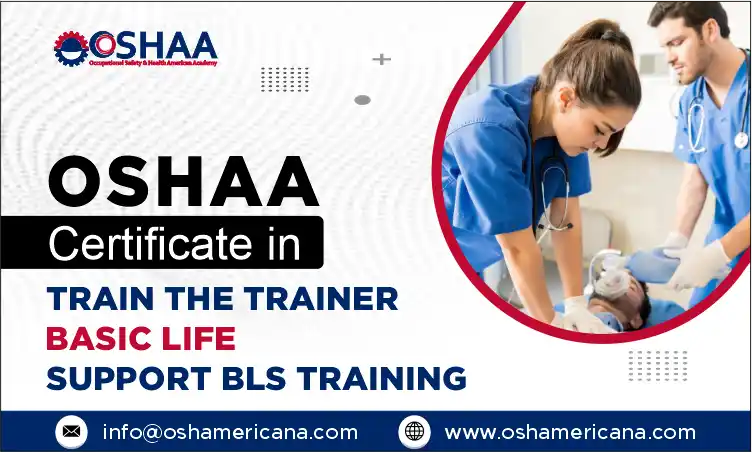Earn the OSHAA 30-Hours Professional Diploma in Behavior and Crisis Management and master the skills to manage conflict, ensure safety, and lead with confidence in any workplace environment.
The OSHAA 30-Hours Professional Diploma in Behavior and Crisis Management is an advanced, industry-recognized qualification designed to develop professional competence in managing behavioral challenges and crisis situations across diverse organizational settings. In today’s fast-paced and high-pressure work environments, the ability to respond effectively to disruptive behaviors and unforeseen emergencies is essential for maintaining safety, compliance, and productivity. This comprehensive diploma program equips participants with the specialized knowledge, practical techniques, and leadership capabilities required to manage complex situations with confidence, professionalism, and emotional intelligence.
The OSHAA 30-Hours Professional Diploma in Behavior and Crisis Management emphasizes the importance of maintaining a safe, respectful, and supportive workplace. Learners are introduced to modern behavioral management strategies, communication frameworks, and evidence-based intervention methods that promote positive outcomes even in high-stress scenarios. The OSHAA 30-Hours Professional Diploma in Behavior and Crisis Management course also provides a structured understanding of crisis management principles—helping participants anticipate risks, respond rapidly to incidents, and implement recovery plans that minimize disruption and ensure continuity. Whether working in healthcare, education, customer service, hospitality, or industrial sectors, professionals trained in behavior and crisis management play a vital role in safeguarding both people and operations.
At the core of the OSHAA 30-Hours Professional Diploma in Behavior and Crisis Management is a focus on proactive prevention and regulatory compliance. The OSHAA 30-Hours Professional Diploma in Behavior and Crisis Management course aligns with OSHA and international safety standards, ensuring participants understand their responsibilities under workplace safety legislation. Through immersive learning experiences, learners explore topics such as de-escalation techniques, conflict resolution, behavioral analysis, emergency communication, and post-incident evaluation. The OSHAA 30-Hours Professional Diploma in Behavior and Crisis Management training enhances both individual performance and organizational resilience, empowering participants to handle challenging behaviors with empathy and professionalism while maintaining adherence to established policies and procedures.
Professionals who complete the OSHAA 30-Hours Professional Diploma in Behavior and Crisis Management will gain the expertise needed to lead crisis response teams, train colleagues in behavioral safety, and promote a culture of mutual respect and accountability. The OSHAA 30-Hours Professional Diploma in Behavior and Crisis Management program’s practical focus ensures that graduates are not only able to manage immediate crises but also implement long-term behavioral improvement strategies that reduce incidents and foster positive workplace dynamics. With an emphasis on communication, situational awareness, and leadership under pressure, participants develop the confidence to make informed decisions that protect both people and property.
The OSHAA 30-Hours Professional Diploma in Behavior and Crisis Management also serves as a powerful tool for professional development. It enables individuals to strengthen their career prospects, qualify for higher-level safety and management roles, and demonstrate compliance expertise that meets global workplace standards. Organizations benefit by having staff trained in OSHA-compliant crisis response and behavioral management techniques, leading to improved safety culture, reduced turnover, and higher employee morale.
By earning the OSHAA 30-Hours Professional Diploma in Behavior and Crisis Management, learners take an important step toward mastering the principles of proactive intervention, ethical leadership, and operational excellence. The OSHAA 30-Hours Professional Diploma in Behavior and Crisis Management qualification not only enhances professional credibility but also ensures that workplaces remain safe, responsive, and resilient in the face of behavioral challenges or emergencies. Through this globally recognized diploma, participants are empowered to create safer environments, promote well-being, and uphold the highest standards of safety and compliance in their professional roles.
OSHAA 30-Hours Professional Diploma in Behavior and Crisis Management
To enroll in the OSHAA 30-Hours Professional Diploma in Behavior and Crisis Management, learners are expected to meet the following criteria:
1. Age Requirement
- Applicants wishing to enroll in the OSHAA 30-Hours Professional Diploma in Behavior and Crisis Management must be at least 18 years of age at the time of registration. This minimum age ensures that participants possess the maturity, emotional awareness, and responsibility required to engage with complex behavioral and crisis management scenarios. Since this course involves learning to manage high-pressure situations and respond to behavioral challenges effectively, an appropriate level of personal and professional maturity is essential for success.
2. Educational Background
- To qualify for the OSHAA 30-Hours Professional Diploma in Behavior and Crisis Management, learners should have at least a secondary school education or its equivalent. While this serves as the basic educational requirement, higher education or prior training in fields such as psychology, healthcare, human resources, education, or occupational safety will be an advantage. Participants with related academic or professional backgrounds will find it easier to apply advanced behavioral management and crisis intervention concepts in real-world settings. The OSHAA 30-Hours Professional Diploma in Behavior and Crisis Management is designed to accommodate both newcomers and professionals seeking to enhance their existing skill set within the domain of workplace safety, behavior regulation, and crisis preparedness.
3. Work Experience
- No prior work experience is required to enroll in the OSHAA 30-Hours Professional Diploma in Behavior and Crisis Management, making it accessible to both entry-level learners and professionals seeking formal certification. However, individuals currently working in sectors such as healthcare, education, corporate management, security, or emergency response may find the training particularly relevant to their professional roles. Those with practical exposure to behavioral challenges or crisis response scenarios will gain deeper insight and context throughout the learning process. The OSHAA 30-Hours Professional Diploma in Behavior and Crisis Management also provides valuable professional development opportunities for experienced workers aiming to advance into leadership, safety, or compliance-based positions.
4. English Proficiency
- To successfully complete the OSHAA 30-Hours Professional Diploma in Behavior and Crisis Management, learners must have a good command of the English language. Participants are expected to read, write, and communicate effectively in English to fully understand course materials, case studies, and regulatory guidelines. Since the OSHAA 30-Hours Professional Diploma in Behavior and Crisis Management includes detailed modules on OSHA compliance, emergency communication, and behavioral reporting procedures, proficiency in English is crucial for accurate comprehension and professional application.
The OSHAA 30-Hours Professional Diploma in Behavior and Crisis Management welcomes individuals from diverse professional and educational backgrounds who are passionate about promoting workplace safety, managing behavioral challenges, and leading with confidence during crises. By meeting these eligibility requirements, learners position themselves to gain an internationally recognized qualification that enhances their professional credibility, strengthens their crisis response capabilities, and prepares them to uphold OSHA-aligned safety and behavioral management standards across various industries.
Study Units
Learning Outcomes
Introduction to Behaviour and Crisis Management (2 Hours)
- Understand the core principles of behaviour and crisis management in the workplace.
- Recognise the importance of effective behaviour management in preventing workplace disruptions.
- Learn the role of crisis management in maintaining safety and productivity.
- Develop a foundational knowledge of how behaviour impacts the workplace environment.
Understanding Human Behaviour in the Workplace (4 Hours)
- Gain an understanding of human behaviour theories and how they apply to workplace settings.
- Identify common triggers for aggression, conflict, and stress in the workplace.
- Recognise patterns of behaviour and how they affect team dynamics and productivity.
- Learn how to assess the psychological and environmental factors that influence workplace behaviour.
Types of Behavioural Challenges and Crisis Situations (4 Hours)
- Understand the various types of behavioural challenges, including aggression, hostility, and non-cooperation.
- Recognise different crisis situations that may occur in the workplace, such as medical emergencies or workplace violence.
- Learn how to assess the severity of a situation and determine appropriate responses.
- Understand the impact of unmanaged behavioural challenges on employee safety and organisational health.
Crisis Prevention and Early Intervention (5 Hours)
- Learn strategies for preventing crises in the workplace by addressing root causes early.
- Understand how to recognise early warning signs of conflict or crisis.
- Develop intervention techniques to address escalating behaviour before it leads to a crisis.
- Implement proactive communication and conflict resolution methods to prevent crises from developing.
De-escalation Techniques and Conflict Resolution (5 Hours)
- Master practical de-escalation techniques for managing aggressive or tense situations.
- Learn effective verbal and non-verbal communication methods to reduce conflict and calm emotions.
- Understand the role of empathy and active listening in de-escalating conflicts.
- Develop conflict resolution strategies that can be applied to diverse workplace situations.
Developing a Crisis Management Plan (4 Hours)
- Learn how to create a comprehensive crisis management plan that addresses potential emergencies.
- Understand how to identify key roles and responsibilities within a crisis management team.
- Develop effective communication strategies for crisis situations.
- Learn how to ensure that crisis management plans are adaptable to different scenarios.
Legal and Ethical Considerations in Crisis Management (3 Hours)
- Understand the legal responsibilities of employers and employees during a crisis.
- Recognise the importance of ethical decision-making when managing behaviour and crises.
- Learn the health and safety regulations that apply to workplace crisis management.
- Understand the legal implications of workplace violence and conflict resolution.
Managing Stress and Emotional Impact in Crisis Situations (3 Hours)
- Learn how to manage personal stress in high-pressure crisis situations.
- Develop strategies for supporting colleagues emotionally during and after a crisis.
- Recognise the psychological impact of crises on individuals and teams.
- Learn how to implement coping mechanisms for employees dealing with the aftermath of a crisis.
The OSHAA 30-Hours Professional Diploma in Behavior and Crisis Management offers a comprehensive range of professional and practical benefits designed to enhance workplace safety, strengthen leadership capacity, and promote compliance with OSHA and international safety standards. This advanced training program equips learners, managers, and organizations with the critical skills needed to manage behavioral challenges, prevent crises, and maintain a positive, safe, and productive work environment. Recognized globally, the OSHAA 30-Hours Professional Diploma in Behavior and Crisis Management supports professional development, legal compliance, and operational excellence, making it a valuable qualification for individuals and businesses committed to achieving higher standards of safety and performance.
1. Enhanced Behavioral Management Skills
- Develop a deep understanding of human behavior, enabling professionals to identify early signs of conflict, stress, or aggression.
- Learn to apply evidence-based techniques for promoting positive workplace conduct and improving interpersonal relationships.
- Equip teams with tools to create psychologically safe environments that support productivity and mutual respect.
2. Strengthened Crisis Response and Control
- Gain essential crisis management skills to respond effectively to emergencies, minimizing risk and potential harm.
- Learn structured methods for decision-making under pressure and managing high-stress situations with confidence.
- Build crisis leadership capabilities aligned with global best practices and OSHA standards.
3. Improved Workplace Safety and Risk Prevention
- Understand how proactive behavior and crisis management directly contribute to workplace safety.
- Learn to identify, assess, and mitigate behavioral and situational risks that could lead to incidents or injuries.
- Promote a culture of prevention and accountability, reducing the likelihood of workplace disruptions.
4. OSHA and International Compliance Alignment
- Acquire detailed knowledge of OSHA’s behavioral safety and crisis response guidelines.
- Ensure organizational policies and practices align with international compliance frameworks.
- Protect your organization from legal liabilities through adherence to regulatory safety standards.
5. Professional Growth and Career Advancement
- Enhance professional credibility by earning the OSHAA 30-Hours Professional Diploma in Behavior and Crisis Management, a globally recognized certification.
- Strengthen employability and career progression in safety management, HR, healthcare, education, and corporate sectors.
- Demonstrate expertise that positions learners for leadership roles in occupational safety and organizational management.
6. Strengthened Leadership and Communication Skills
- Develop strong leadership capabilities for guiding teams through behavioral challenges and crisis situations.
- Learn effective communication strategies that promote collaboration, understanding, and compliance.
- Cultivate the confidence to lead by example in maintaining safety and behavioral standards.
7. Enhanced Organizational Efficiency and Productivity
- Reduce conflict-related disruptions and absenteeism through proactive behavior management strategies.
- Build a cooperative and supportive work culture that enhances employee engagement and efficiency.
- Improve operational outcomes by maintaining stability and focus during crises or emergencies.
8. Legal Protection and Risk Mitigation
- Understand the legal implications of behavioral incidents and crisis mismanagement in the workplace.
- Learn how to document, report, and address issues to minimize legal exposure.
- Strengthen corporate governance and accountability through adherence to best practices.
9. Empowered Employee Well-being and Psychological Safety
- Promote a positive and inclusive work culture that prioritizes emotional and psychological well-being.
- Equip managers and staff with the tools to manage stress, burnout, and behavioral challenges constructively.
- Contribute to long-term employee satisfaction and retention through a supportive, respectful work environment.
10. Practical Application Across Multiple Industries
- Gain adaptable skills applicable to healthcare, education, hospitality, construction, manufacturing, and corporate sectors.
- Learn how to manage behavioral risks unique to different workplace settings.
- Increase organizational resilience by ensuring preparedness across diverse operational environments.
11. Continuous Improvement and Innovation in Safety Practices
- Foster a mindset of continuous learning and behavioral improvement in safety management systems.
- Utilize data-driven insights to evaluate and enhance crisis response effectiveness.
- Implement innovative strategies that align with emerging global safety trends and standards.
12. Cost Savings and Operational Continuity
- Reduce the financial impact of incidents, conflicts, and crises through prevention and preparedness.
- Minimize downtime and disruption by implementing structured crisis response frameworks.
- Support sustainable operational efficiency and profitability through proactive risk management.
13. Development of a Positive Safety Culture
- Encourage behavioral accountability and team cooperation to build a strong organizational safety culture.
- Empower all employees to take ownership of their roles in maintaining safety and compliance.
- Reinforce a collective responsibility toward crisis prevention and behavioral excellence.
14. Increased Confidence in Managing People and Situations
- Gain confidence in addressing behavioral issues, managing conflicts, and leading during crises.
- Develop professionalism and composure in handling emotionally charged or unpredictable situations.
- Strengthen decision-making skills that inspire trust and reliability across the organization.
15. Global Recognition and Professional Credibility
- Achieve a prestigious qualification recognized by employers and institutions worldwide.
- Enhance your profile as a competent professional trained in advanced behavioral and crisis management.
- Join a global community of safety professionals dedicated to promoting workplace well-being and compliance.
Completing the OSHAA 30-Hours Professional Diploma in Behavior and Crisis Management empowers participants to lead with confidence, competence, and compassion. The OSHAA 30-Hours Professional Diploma in Behavior and Crisis Management course not only enhances individual skills but also contributes to organizational success by strengthening behavioral standards, promoting compliance, and ensuring effective crisis response. The OSHAA 30-Hours Professional Diploma in Behavior and Crisis Management positions learners as safety-focused professionals capable of fostering resilience, improving workplace culture, and achieving long-term operational excellence in any professional environment.
The OSHAA 30-Hours Professional Diploma in Behavior and Crisis Management is specifically designed for professionals, organizations, and stakeholders who aim to strengthen behavioral control, improve crisis preparedness, and ensure compliance with OSHA and international safety standards. This globally recognized program caters to individuals across various industries, including healthcare, education, corporate, construction, and manufacturing, who are responsible for maintaining safety, discipline, and effective response during emergencies. By combining behavioral science principles with crisis management strategies, the OSHAA 30-Hours Professional Diploma in Behavior and Crisis Management enables professionals to create safer, more productive, and compliant workplaces while enhancing their leadership and decision-making skills.
1. Safety Managers and HSE Officers
- Responsible for developing and implementing safety programs within organizations to ensure compliance and minimize workplace risks.
- The course helps them understand behavioral factors that contribute to unsafe practices and equips them to promote positive safety behaviors.
- Learners gain advanced crisis management strategies essential for responding to emergencies and mitigating risks effectively.
- Supports OSHA compliance by enhancing their ability to maintain behavioral safety standards across all departments.
2. Human Resource Professionals
- Play a key role in managing employee relations, workplace behavior, and conflict resolution.
- The course empowers HR managers to identify early signs of workplace stress, aggression, or misconduct and intervene effectively.
- Learners acquire techniques for promoting psychological safety and employee well-being.
- Strengthens HR compliance with OSHA behavioral and workplace safety regulations.
3. Supervisors and Team Leaders
- Responsible for maintaining discipline, communication, and morale within their teams.
- The course trains them to recognize potential crises and apply de-escalation strategies to manage difficult situations.
- Enhances leadership, communication, and decision-making skills during behavioral challenges.
- Promotes safer and more efficient team environments aligned with OSHA workplace safety standards.
4. Healthcare Professionals and Caregivers
- Regularly deal with patients or clients who may exhibit challenging behaviors due to stress or health conditions.
- The course teaches effective behavior management and crisis intervention strategies applicable in clinical and caregiving settings.
- Learners develop empathy, composure, and communication skills to handle sensitive situations safely.
- Reinforces compliance with health and safety regulations in patient care environments.
5. Educators and School Administrators
- Responsible for managing student behavior and maintaining safe learning environments.
- The course provides tools for identifying behavioral risks and implementing preventive strategies.
- Enhances crisis management and communication techniques useful in educational institutions.
- Promotes a culture of safety and emotional well-being in line with international standards.
6. Corporate Managers and Executives
- Oversee organizational behavior, workplace ethics, and employee performance.
- The course helps them understand the impact of behavioral management on corporate culture and productivity.
- Develops their ability to lead effectively during crises and maintain stability across operations.
- Strengthens compliance and risk management within organizational frameworks.
7. Law Enforcement and Security Personnel
- Often encounter volatile or high-pressure situations requiring quick and controlled responses.
- The course enhances their crisis intervention, negotiation, and de-escalation skills.
- Provides behavioral insight to improve safety and conflict resolution effectiveness.
- Reinforces OSHA-aligned training for maintaining public and workplace safety.
8. Emergency Response and Crisis Management Teams
- Tasked with preparing for and responding to emergencies within organizations.
- The course offers structured frameworks for crisis assessment, communication, and recovery planning.
- Strengthens leadership during high-stress situations through behavioral control and situational awareness.
- Ensures alignment with OSHA emergency preparedness and behavioral safety requirements.
9. Mental Health and Social Care Professionals
- Work directly with individuals facing emotional distress or behavioral disorders.
- The course deepens their understanding of behavioral dynamics and structured crisis response.
- Enhances their capacity to manage workplace stressors and client interactions safely.
- Promotes compliance with occupational health and psychological safety guidelines.
10. Business Owners and Organizational Leaders
- Hold overall responsibility for workforce safety, well-being, and regulatory compliance.
- The course equips them with strategies for promoting a culture of safety, respect, and resilience.
- Enables leaders to respond effectively to internal crises and ensure operational continuity.
- Strengthens long-term compliance and reputation through proactive behavioral management systems.
The OSHAA 30-Hours Professional Diploma in Behavior and Crisis Management is ideal for anyone committed to improving workplace safety, behavioral control, and crisis preparedness. By completing this globally recognized training, participants gain the professional expertise to foster a positive organizational culture, reduce incidents, and ensure alignment with OSHA and international safety standards. The OSHAA 30-Hours Professional Diploma in Behavior and Crisis Management course not only strengthens individual capabilities but also enhances organizational resilience, compliance, and operational excellence, preparing learners to lead confidently in today’s evolving professional environments.







